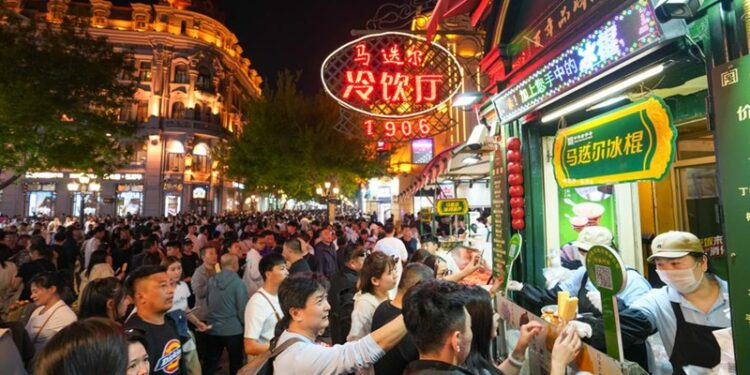China is committed to transforming its cities into livable, resilient, and intelligent spaces through ongoing urban renewal initiatives aimed at improving urban landscapes, enhancing living standards, and boosting domestic consumption.
During a State Council executive meeting on Friday, the need to speed up the renovation of old residential neighborhoods and urban villages was emphasized. The meeting also highlighted efforts to upgrade urban infrastructure, restore ecosystems, and preserve historical and cultural heritage in urban areas.
Chen Jie, a professor at Shanghai Jiao Tong University, noted that China’s urbanization rate has surpassed 66 percent after decades of rapid growth. However, issues such as inadequate underground infrastructure and poor planning have emerged, and urban renewal programs are designed to tackle these challenges.
The meeting also underscored the importance of attracting private investment to urban renewal projects. It encouraged innovative, localized approaches to foster high-quality urban development, with the government providing guidance and private capital playing a key role.
Dong Yu, executive vice president of the China Development Planning and Research Institute at Tsinghua University, pointed out that while urban renewal projects have immense market potential, they require substantial funding and lengthy implementation cycles. A sustainable model involving government leadership, private capital, and public participation is essential.
An official from the Ministry of Housing and Urban-Rural Development emphasized that urban renewal must be grounded in detailed investigations and public feedback. These initiatives should address challenges that hinder city competitiveness or sustainable development.
By 2025, China plans to complete renovations of urban residential communities built before 2000, upgrade aging gas pipelines, and eliminate polluted water bodies in county-level cities. Additional goals include renovating underground infrastructure, promoting solid waste classification, and creating pocket parks and green corridors, according to the ministry.
Related Posts

















